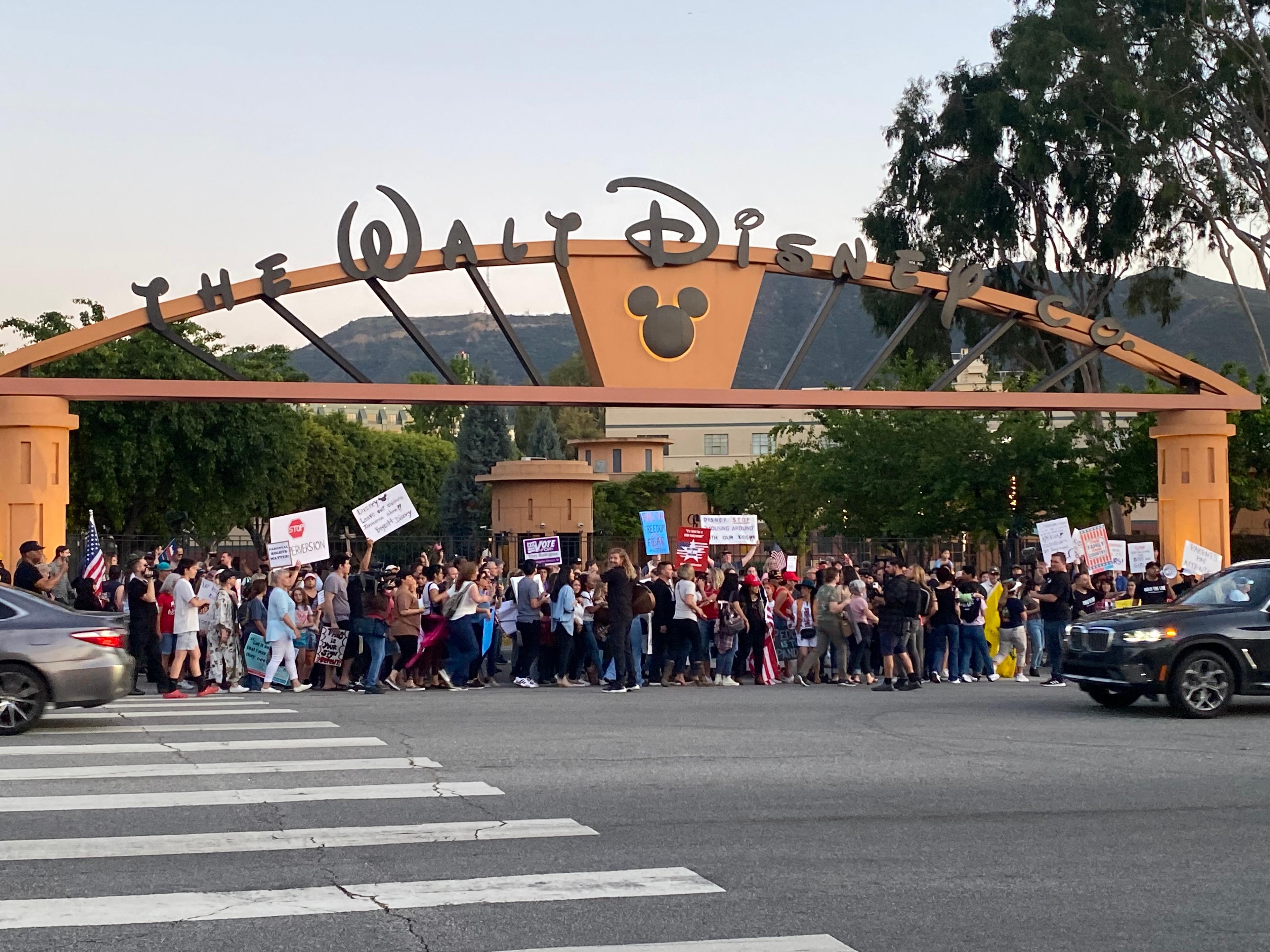Pushing controversial ideologies in its feature films and programs is affecting The Walt Disney Co.’s profits, the family entertainment giant admitted in its latest government filing.
In its Securities and Exchange filing, a securities report filed Nov. 21, the company reported demand for its parks has not returned to levels seen before the COVID-19 pandemic.
Viewership for theatrical films and TV shows has also dropped, Disney added.
“Consumers’ perceptions of our position on matters of public interest, including our efforts to achieve certain of our environmental and social goals, often differ widely and present risks to our reputation and brands,” Disney said in the filing.
Disney encountered public backlash last year after taking a stand against the passage of Florida’s parental rights in education legislation in March 2022, saying the bill unfairly targeted the LGBT community. The law prohibits public school teachers from teaching lessons on sexual orientation, or gender identity, to children in kindergarten through third grade.
Company employees in Florida staged a walk-out to protest the bill. The state has since replaced its district board overseeing Disney World and has eliminated its diversity, equity, and inclusion (DEI) programs and DEI board.
Disney movie fans also pushed back against changes made to the company’s recent feature films. The decision to replace Ariel with a black actress in The Little Mermaid led to abysmal box office numbers in China and South Korea.
Most recently, the casting of Rachel Zegler as Snow White in a remake has sparked controversy after the star made public comments about not liking the character growing up. She has told interviewers the prince “literally stalks” Snow White in the 1930s version, and that the movie is not a love story at all but a journey for Snow White to “find her true self.”
The long-awaited sequel to James Cameron’s 2009 hit “Avatar: The Way of Water” was the bright spot in the company’s year, boosting its revenue by earning more than $2 billion at the box office.
In the past, companies would avoid political controversies and focus on their products, but recently some executives are capitalizing on it, according to The Hill columnist Jonathan Turley in a Nov. 25 column.
“The question is the balance and degree of the political and social agenda,” Turley wrote. “Disney’s products are now viewed by many conservatives as empty virtue signaling and endless attempts to indoctrinate children. Moreover, when the company publicly declares its opposition to a popular parental rights bill in Florida, it is moving away from a commercial to a political focus.”
Overall, however, Disney reported in the filing a decrease in home entertainment, domestic advertising revenue, lower viewership, and lower sales for TV shows and films.
“We face risks relating to misalignment with public and consumer tastes and preferences for entertainment, travel and consumer products, which impact demand for our entertainment offerings and products and the profitability of any of our businesses,” Disney said in the filing.
Disney is currently worth $171.50 billion—rebounding nearly 10 percent from 2022 but substantially less than its high of $341 billion in March 2021.
Disney operates 12 theme parks at six resorts in North America, Europe, and Asia.
The near future doesn’t look much brighter for the company. On Jan. 1, 2024, an early version of Mickey Mouse will enter the public domain as Disney’s copyrights expire.
Attempts to pass legislation in Congress to protect its famous character from public use have failed. Republicans also tried but failed to pass a law to strip Disney of other copyrights following fallout from protesting the Florida parental rights law.
“As copyrights expire, we expect that revenues generated from such [intellectual property] will be negatively impacted to some extent,” Disney said in the filing.
The company is known to defend its ownership of its characters, suing those who violate copyright and trademark laws. But that will change next year when anyone can produce merchandise, books, or use the Mickey Mouse version from the 1928 film “Steamboat Willie” in any way.
Winnie-the-Pooh, Piglet, and Christopher Robin entered the public domain in January 2022 after A.A. Milne’s 1926 “Winnie-the-Pooh” novel copyrights expired.
As a result, a campy horror film called “Winnie the Pooh: Blood and Honey” was released in the United Kingdom in March. In the film, Pooh and Piglet go on a bloody rampage after a grown Christopher Robin leaves them to fend for themselves. The movie grossed nearly $5 million worldwide.
The Walt Disney Co. did not return requests for comment.














